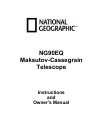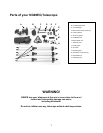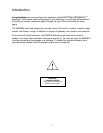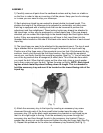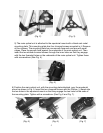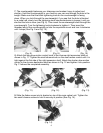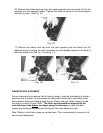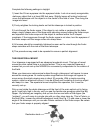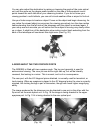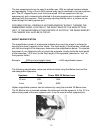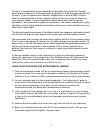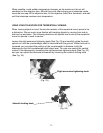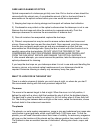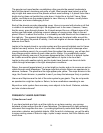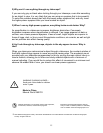
15
2) Why can’t I see anything through my telescope?
If you see only gray or black when looking through your telescope, even after searching
for an object to view, it is very likely that you are using an eyepiece that is too powerful.
To solve this problem always start with the lowest power eyepiece first, and only insert
the higher-power eyepiece after you have located an object.
3) When I use my high-power eyepiece, everything looks much darker. Why?
As magnification in a telescope increases, brightness diminishes. Conversely,
brightness increases when magnification is reduced. If an image appears too dark or
unclear, use a lower-powered eyepiece. Views of small, bright objects are superior to
those of large, dark, or blurry ones! Atmospheric conditions, air currents, as well as light
and air pollution also affect viewing quality.
4) As I look through my telescope, objects in the sky appear to move. Why is
that?
When you observe an astronomical subject through a telescope, the constant rotation of
the Earth makes things appear to move across the viewing area. The equatorial mount
provided with your telescope compensates for this by moving the main optical tube in a
circular fashion, allowing you to follow and study celestial objects with a minimum of
manual adjusting. If you would like to reduce this effect of movement to a minimum and
observe the widest field of view, you should use lower-power eyepieces.
!
Made in China
Manual Part # 260722
National Geographic’s net proceeds support vital exploration, Experience the National Geographic Channel.
conservation, research, and education programs. Call your cable or satellite provider for availability.
Visit our website: www.nationalgeographic.com
2003 National Geographic Society. NATIONAL GEOGRAPHIC and Yellow Border are trademarks of National Geographic
Society. All rights reserved.
WARNING! CHOKING HAZARD –
Small parts. Not suitable for children
under 3 years.



